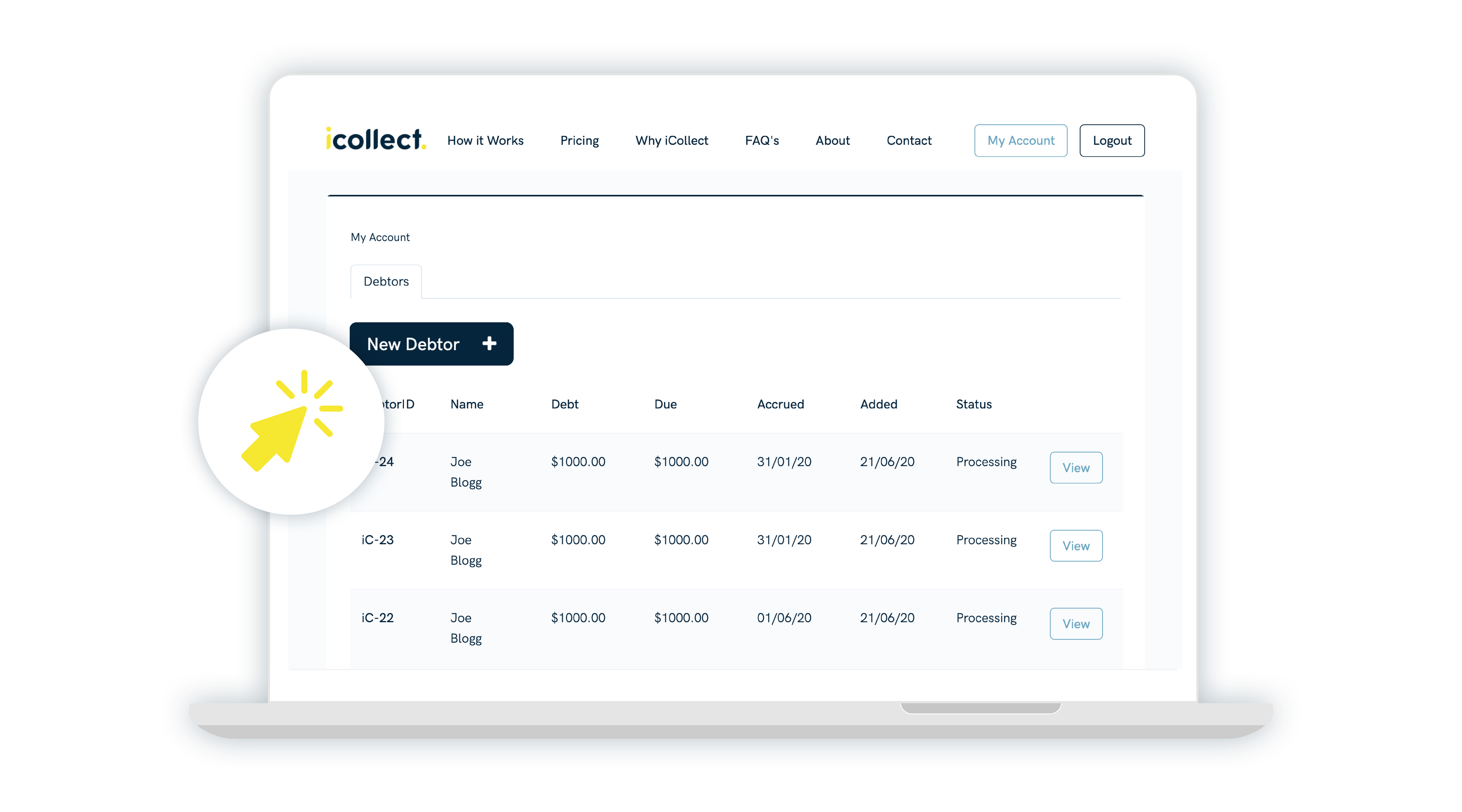Small businesses are the lifeblood of the NZ economy and if you run one, it’s your lifeblood too. Improving cash flow is even more essential for smaller businesses, and outstanding debts from your clients are a threat to this.
When it comes to how to collect debt, small businesses may not always know the most efficient methods, and can’t always afford their own full-time debt collectors or hire third-party agencies. There are cost-effective options available to achieve the same results.
While on the whole, hopefully most of your clients pay on time, there are always a proportion of clients that haven’t paid. They usually fall into one of three types:
1. The ‘perennial late debtor’ – every bill is paid late.
2. The ‘non-payer’ – they never intended to pay you in the first place.
3. The ‘going-through-a-bad-time debtor’ – a client who usually pays on time but they are facing financial issues.
If you’re struggling with debt recovery, and have exhausted the usual options of email reminders and follow up calls, you can turn to your lawyer or a debt collection agency, who will communicate with your debtor on your behalf. These can be pricey options for you, plus they may alienate clients, especially type number 3 above, so having a variety of approaches up your sleeve makes smart business sense.
No doubt you are practising these measures, but if you’ve been fortunate enough to have good-paying customers previously, these hygiene factors may need some rinsing out and reapplying.
Set expectations upfront with your customers: be clear about your credit terms, and enforce them if they don’t adhere to them. If you say that you charge a fee for late payment, charge this fee to show them your mean business. If the invoice is a particularly large one, after the invoice is first sent, you may want to give your customer a call to check they received the invoice and are happy.
Don’t delay: make the effort to follow up unpaid invoices on the day they are due. The longer a bill is unpaid, the less likely it is to be paid – ever! This means following up with your customer, by email, phone, or an automated reminder from your accounting software. The latter is a particularly handy tool, and helps to ensure you’re maintaining good relationships with your clients.
Be clear about next steps: tell your clients that if payment isn’t made, you will be following them up in another 7 days. And if a client has promised to pay by a certain date, make sure you contact them the day after if payment hasn’t been made.
In some circumstances the measures above simply aren’t enough and you need to switch things up a gear, without incurring lawyer and debt collection agency fees.
iCollect is a pain free and cost-effective DiY online debt recovery system that you can implement yourself, and get the same result that an agency could achieve – your debts paid, and cash flow restored.
The results-focused process sends automated debt collection letters to your outstanding debtors, with the backing of a debt collection agency. We don’t lock you into long-term contracts, and there’s also a one-off payment option if you only need us once.
Having helped over 9,000 Kiwi SMEs, Napier’s Laser Plumbing is just one of iCollect’s delighted customers. “We have been using the iCollect system for approximately 5 years and found it a very effective business tool in the collection of our overdue accounts. It certainly gets a response and the letters are very well worded so as not to offend our customers. By using iCollect letters first we find we have less bad debts occurring.”
If you need assistance with small business debt collection, take a look at what iCollect has to offer.
